Dear Son, (A Black History Month Mini-Lesson)
On December 20, four days after his semester finished, my youngest son flew home for Christmas break. On December 29, he flew back—19 days before his...
AP & Honors Mathematics
Explore Wiley titles to support both AP and Honors mathematics instruction.
Literacy Skills & Intensive Reading
Connections: Reading – Grades 6–12
Empower student success with a proven intensive reading program that develops strong reading skills in striving readers.
Drama, Speech & Debate
Basic Drama Projects 10th Edition
Build students’ confidence and competence with comprehensive, project-based theatre instruction.
Literature
Connections: Literature
Support learners as they study dynamic, relevant texts and bring the richness of diverse voices to students through literature.
Literature & Thought
Develop critical thinking, reading, and writing across literacy themes, genres, historical eras, and current events.
Language Arts
Vocabu-Lit® – Grades 6–12
Help students build word power using high-quality contemporary and classic literature, nonfiction, essays, and more.
Connections: Writing & Language
Help students develop grammar, usage, mechanics, vocabulary, spelling, and writing and editing skills.
Reading/English Language Arts
Measuring Up to the English Language Arts Standards
Incorporate standards-driven teaching strategies to complement your ELA curriculum.
English Language Learners
Measuring Up for English Language Learners
Incorporate research-based best practices for ELLs with an approach that includes a focus on language acquisition strategies.
Mathematics
Measuring Up to the Mathematics Standards
Incorporate standards-driven teaching strategies to complement your mathematics curriculum.
Foundations
Measuring Up Foundations
Help students master foundational math skills that are critical for students to find academic success.
Science
Measuring Up to the Next Generation Science Standards
Give students comprehensive NGSS coverage while targeting instruction and providing rigorous standards practice.
Assessment
Measuring Up Live
Deliver innovative assessment and practice technology designed to offer data-driven instructional support.
For a better website experience, please confirm you are in:
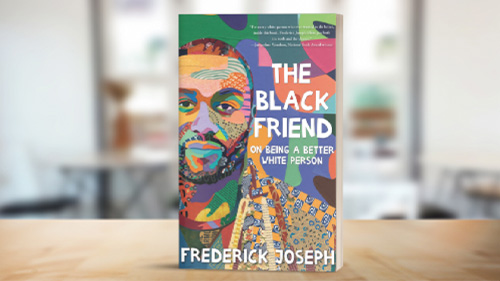
In just the past few weeks, I’ve seen two friends post on social media about their spirit animals.
Neither of them is Native American.
Recently, State Farm ran a commercial where Aaron Rodgers claimed to have a spirit animal.
He’s not Native American either.
I used to use a video in class from The Moth radio hour where the not Native American storyteller says as his dramatic and humorous conclusion, “I became my own spirit animal.”
I don’t use that video anymore. I learned better. I, along with my friends on social media, would benefit from having a Native American friend.
Yes, I know this is Black History Month, but the idea behind needing a Native American friend is precisely the point of The Black Friend: On Being a Better White Person by Frederick Joseph. For Joseph, “the Black Friend is the person who is willing to speak the truth to the white people in their lives, to call them out when they do or say something hurtful, ignorant, or offensive. After reading this book, my hope is that white people won’t need to tokenize or ask Black people and people of color to do all the work.” (14)
Those friends who posted about spirit animals are good people. I would venture to say they don’t see themselves as racist at all, and they would say and believe they meant no harm with their comments.
Joseph addresses these misconceptions throughout the book.
In these days of banning and protesting critical race theory, people, specifically white people, don’t want to talk about race. They don’t want to feel uncomfortable or like to think of themselves as colorblind, but according to Joseph, “the idea of being color blind and of trying to steer conversations away from race are the most manipulative and powerful tools of racism.” (30)
And Joseph recognizes that if you’re reading his book, “you’re probably a white person who wants to do better,” (16) but he also doesn’t hold back: “The world needs you to step up, or get out of the way, Particularly if you’re a white person. The world needs to be better, and because of the power that white people hold in society, much of that change needs to start with white people. The oppression that white people have inflicted on people of color since, well, damn, the very inception of this country can only be undone by the oppressors (white people).” (15–16)
Also, my friends need to read Chapter 3: “Certain Things are Racist, Even if You Don’t Know It” and Chapter 5: “This Isn’t a Fad: This is My Culture.”
In The Black Friend: On Being a Better White Person, Frederick Joseph, as a Black man, creates a primer on how to work through those uncomfortable and awkward issues that surround race, culture, and experience and calling out white people “when they do or say something hurtful, ignorant, or offensive.” (14)
One of the ways Joseph does this is by bolding terms and creating what he calls The Encyclopedia of Racism. As an expert Black person, Joseph, throughout the book, defines, adds context, and explains terms his white readers may need to explore further or need additional information to understand.
“I hope you already looked up white privilege from page 1. Here’s another opportunity to use the encyclopedia. If you aren’t familiar with the 1921 Tulsa Race Massacre, go to the back of the book and learn about it.” (4–5)
Just as Frederick Joseph is an expert Black Friend, students have areas of expertise they can share by creating their own Encyclopedias of Expertise.
They may create an Encyclopedia of Fortnite Battle Royal or Encyclopedia of All Things ABC’s The Bachelor or Encyclopedia of Playing High School Tennis.
Encyclopedia Intro: Have students write a brief introduction explaining the purpose of their encyclopedias.
Example:
Maybe your history teacher is also the tennis coach who happens to be giving out extra credit to anyone who shows up to today’s match after school. And if you decide you need extra points but have no clue about tennis, this Encyclopedia of High School Tennis is all you need for extra credit and extra understanding.
Encyclopedia Entries: Have students create entries for their encyclopedias based on their knowledge of the topic.
Singles: No this isn’t the dating status of the person you’re watching play. Singles is when one player competes against one other player. There is a single person on each side of the court.
Love means nothing. No, seriously. In tennis the first score is no score and it’s called Love. A tennis player who has love has no points.
Encyclopedia Extras: You may have students format their encyclopedias as actual encyclopedia pages. Show students examples of what encyclopedia pages look like and have them serve as mentor texts for students to use in creating theirs.
Interested in buying any of the books mentioned in this post? Visit our classroom libraries page.
Download a pdf version of the lesson to easily print or save!
Michael Méndez Guevara is a former high school journalism and English teacher who spent his time in the classroom helping students see themselves as writers and fall in love with reading through the world of young adult literature. As an educational sales consultant with Perfection Learning®, Michael works with teachers and schools on improving their literacy instruction and providing resources to help students achieve academic success. He has taught elementary school, middle school, and high school and has worked as a district level leader and served on the Texas state standards revision committee that developed the state’s current literacy standards. He is the father of three adult sons, the youngest a student at the University of Kansas—Rock Chalk! Michael is working on a professional development book for literacy educators and currently has agents reading the manuscript of his young adult novel, The Closest Thing to a Normal Life. When he's not reading, writing, or running, Michael is fully committed to watching as much Law & Order as possible.
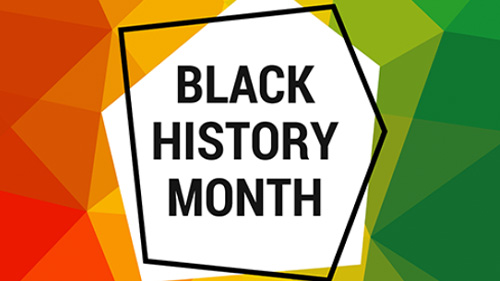
On December 20, four days after his semester finished, my youngest son flew home for Christmas break. On December 29, he flew back—19 days before his...
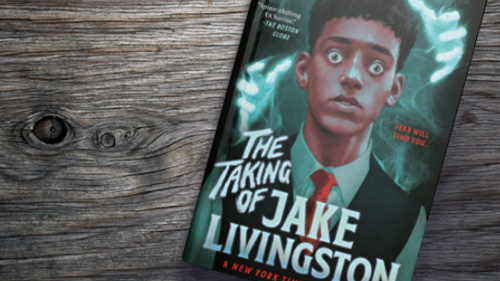
My mother tells this story of being so exhausted that she couldn’t get up to rock my older brother, her first child, back to sleep in the middle of...
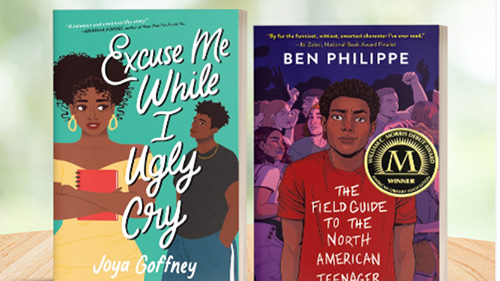
Okay—circle of trust here. After dropping my youngest child off at college all the way from San Antonio, Texas, to Lawrence, Kansas, at The...
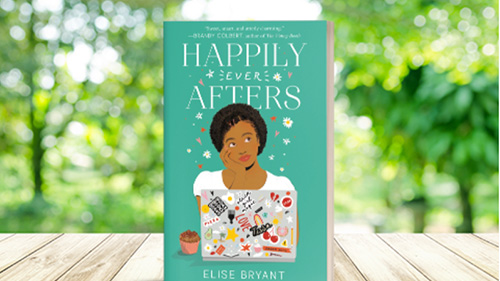
Back when I taught at Southwest High School in San Antonio, Sharri Peterson, who dubbed herself my work wife, was my school spirit partner. Whenever...

In honor of Black History Month, I have created a lesson that can be used for students to learn (or review what they have learned) about African...
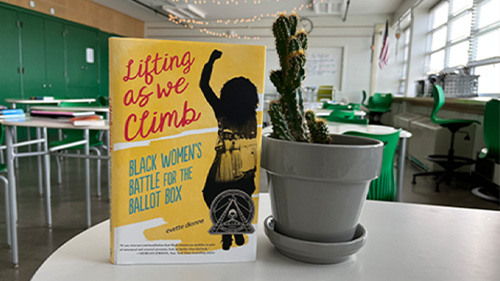
My favorite thing about Lifting As We Climb: Black Women’s Battle for the Ballot Boxby Evette Dionne is that it’s accurate, and the author highlights...
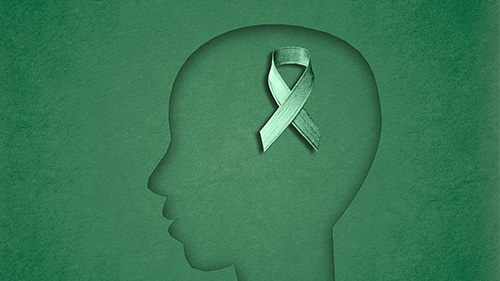
May is Mental Health Awareness Month. It’s also the last full month of school for traditionally-scheduled districts. I think mental health is the...
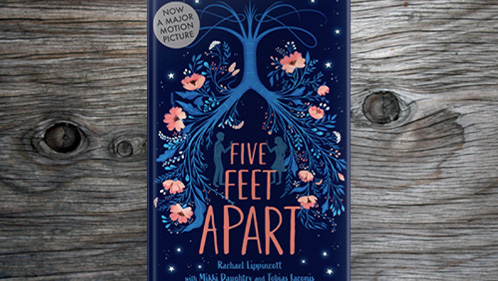
It’s not very often that TV shows or movies come before the book version, but it does happen sometimes! The art of writing is alive in visual media...

The goals of ELA instruction in middle and high school range from developing basic reading comprehension and writing skills to reading and writing...

Before transitioning away from life as a public school educator, I worked as the academic trainer for English and social studies in a large, urban...
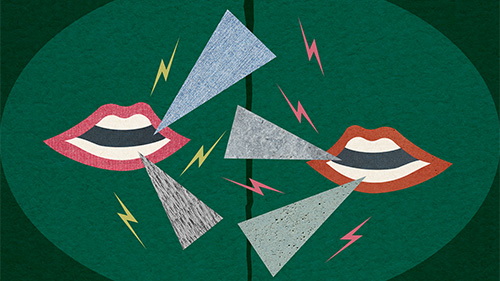
In Kimberly Brubaker Bradley’s Fighting Words, 10-year-old protagonist Della gives readers a front row seat to her daily life in foster care with her...
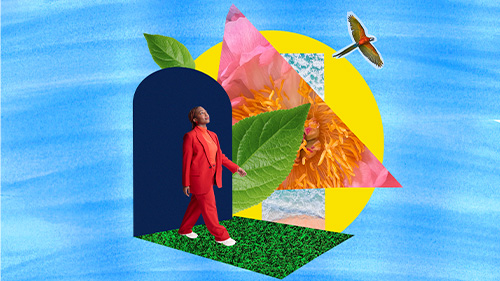
The most beautiful part of January isn’t the snow or the magical lighted displays around town, but instead it’s the chance for a new beginning....
